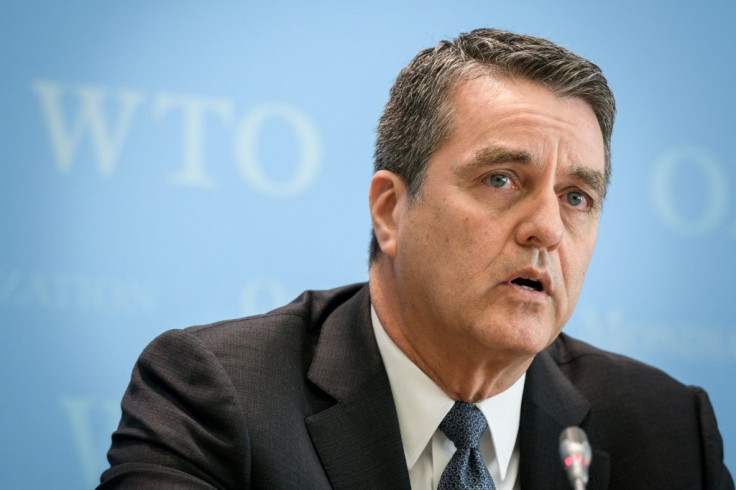Azevedo: Brazilian WTO Boss Gets Seven-year Itch
Roberto Azevedo, who suddenly announced Thursday he was quitting as head of the World Trade Organization, is a Brazilian career diplomat who succeeded where others failed in busting through logjams.
But an increasingly hostile approach to free trade from US President Donald Trump meant even Azevedo could only go so far.
Azevedo, 62, has headed up the WTO since 2013 and prioritised boosting the trading capacity of the world's less-developed countries.
With broad experience in international economic and trade issues, he devoted much of his first term to unblocking agreements that had long been on ice.
But in his second four-year spell from 2017, countries have failed to conclude fresh multilateral agreements and the WTO has struggled to deal with a US administration locked in trade rivalry with China.
Azevedo's term was due to expire at the end of August 2021.
However, his planned departure 12 months early -- after exactly seven years in the role -- leaves the WTO scrambling to find its next director-general as the world reels from the economic shock of the coronavirus pandemic.
Azevedo had been his country's chief litigator in many WTO disputes and served on a string of key bodies at its Geneva headquarters, earning himself a reputation as an experienced and credible negotiator, and a consensus-builder.
He had taken part, in various capacities, in nearly all WTO ministerial conferences since the launch of the Doha Round of trade negotiations in 2001.
Azevedo became Brazil's ambassador to the WTO in 2008.
When Frenchman Pascal Lamy, a former European Union trade chief, stepped down after his second term heading the WTO, Azevedo put himself forward to become the sixth director-general.
Selling himself on having "come from within" the system, he garnered broad support from rich, emerging and poor nations alike.
Azevedo's major achievements came in his first term -- notably helping secure the organisation's first-ever multilateral agreement.
Member states gathered in Bali in December 2013 and approved the Trade Facilitation Agreement, standardising customs procedures to simplify the flow of goods around the world.
He called it an "historic moment", saying the deal "delivered reforms that will make a real difference -- particularly for our poorest members".
And in 2015, the Nairobi Package of measures brought about agriculture reform.

That came alongside a deal to expand the Information Technology Agreement -- the WTO's first major tariff-cutting deal since 1996.
"Besides making a difference to people's lives and livelihoods across the membership, they also showed that the WTO is a place where you can do business," he said of the deals.
Azevedo had also expanded the WTO membership to 164, bringing in Yemen, Seychelles, Kazakhstan, Liberia and Afghanistan.
In standing for a second term in 2017, he offered to maintain a "relentless, steady, but pragmatic approach".
But he made little headway amid raging trade wars and relentless attacks by Trump, who has accused the WTO of treating the United States unfairly and has pushed for dramatic reforms.
Azevedo was unable to protect the organisation's vital dispute settlement body, which was put on ice last year after Washington blocked the appointment of new judges.
Born in Salvador on October 3, 1957, Roberto Carvalho de Azevedo graduated in electrical engineering and joined Brazil's foreign service in 1984.
He represented his country in the World Intellectual Property Organisation, the United Nations Council for Trade and Development and the International Telecommunications Union.
He also served in postings at the Brazilian embassies in Washington (1988-91) and Montevideo (1992-94), and at his country's UN mission in Geneva (1997-2001).
His wife Maria, 62, is a fellow Brazilian career diplomat and has been the country's ambassador to the UN's Human Rights Council in Geneva since 2016.
They both studied at the Rio Branco Institute -- the Brazilian foreign ministry's diplomatic academy.
The couple have two daughters and three grand-daughters.
Azevedo said he reached a "personal decision" to leave the WTO after long talks with his family.
He said he was not eyeing up any political opportunities and the decision was not health-related, following his recent knee surgery.
"My tenure as WTO director-general has been the most demanding, exciting and gratifying period in my professional life," he said.
"I hope the future holds new challenges in store, but as of right now, I do not know what they will be."
© Copyright AFP 2024. All rights reserved.





















